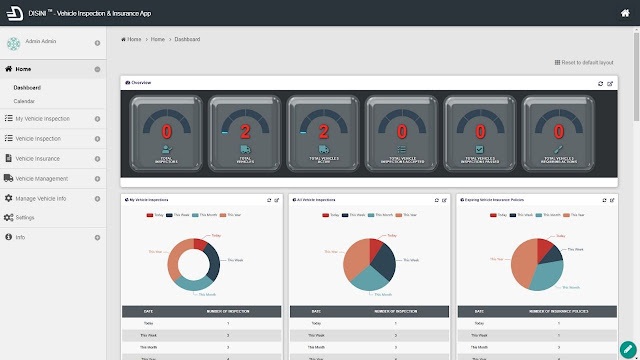Coding for Non-Coders: Why Should You Build Your Own Apps?
In part three of this series (which is the next post), we will take you through the step-by-step process of building an enterprise web application without any programming skills. But before then — and on a deep-thinking, heart-searching level — why should YOU build your own enterprise apps? Apparently, there are umpteen professional software experts out there; is it a brilliant business move to build your apps in-house in place of paying an experienced dev to do it?
Here's what we've discovered in our interactions with organizations around the world:
We've found that a good number of organizations want to create their own business-to-employee (B2E) apps. While that’s definitely a good thing, there is a problem:
The team members of these organizations, in most cases, do not know how to code. Yet, these enterprises do not necessarily want to outsource the development task; they want the apps built in-house.
Why? Because they've realized the numerous boons associated with internal development and are looking to avoid the interferential disbenefits that come with the traditional method of outsourcing app development.
The points below should help you have a clearer picture of the importance and benefits of building your own business applications internally.
- Quicker turnaround time: One of the biggest challenges faced by organizations regarding building enterprise apps the traditional way is lengthy time requirement. On average, it takes about seven months to a year to write a single app, traditionally. Considering this extensive time input, it's worth developing your apps in-house since codeless tools can dramatically speed up the development process while saving an ample amount of time.
- Reduced costs: Another major reason you should build your own enterprise apps is the cost of development and maintenance. The price tag of outsourcing development is surprisingly high. On average, it costs north of $250,000 for an app to be developed. Not everyone can afford that high an amount, hence the need for internal development. With just a small fee, your team’s dream of building any app they want at any time can become a reality.
- Practical empowerment: In-house development empowers a broader base of your workforce — departmental people, product managers, process owners, and so on — not just IT. These non-technical team members usually have valuable domain expertise and inventive ideas, and with an opportunity to create their own apps using visual, drag-and-drop tools, they'll be able to develop their skills, make meaningful contributions, and extend their expertise to benefit the organization some more.
- Smart solutions to problems: Fostering a world in which everyone can build apps would not only address the traditional app backlog faced by many organizations but would also enable organizations to find new and innovative ways to *quickly* solve internal organizational problems. Think of a situation where you need to readily manage internal bookings within your organization. Can you easily and quickly create an app to handle that? Oh well, yes! But with a no-code/low-code tool like Joget Workflow.
- Trendiness: You know, the world is fast changing and work has gone from the way it used to be to a smarter approach. It's the same with development and how we use devices these days. In fact, Gartner says that before 2020, when people go online, they'll use their tablet or smartphone first instead of traditional computers. This means the demands for enterprise applications by employees is proliferating at a time when developer resources are in short supply. With this in mind, it's only intelligent you find a way to build apps internally. Gartner even mentions that by 2018, more than 50 percent of all enterprise apps will be created by business users, using codeless development tools.
- Increased productivity: Imagine being able to effortlessly and quickly build, at any given time, enterprise applications that can immediately enhance your team's operational efficiency and increase workers’ productivity, without the need to contact any pro developer. Now, that's the sort of benefit you get when you equip your team to build applications internally.
- Complete creative control: In traditional app development, there's the problem of control, customization, and versioning. Businesses that wish they could customize their app to something more custom-tailored usually have zero or very little chances of doing so given that the application wasn't written by them, and customization will most likely require coding. If they finally get to do it, such customization, versioning, and maintenance most times come with extra costs. Using no-code/low-code platforms to build your apps cuts off these unnecessary headaches and expenses while giving you complete creative control of your apps.
You can start with Joget Workflow, one of the world's leading open source platforms for building enterprise web applications that employees love.
This is the second post in the Coding for Non-Coders series. If you haven't had any chance to read the first post, you can do so here. In part three, we'll show you exactly how to build applications with no coding requirements whatsoever.


Thanks
ReplyDelete